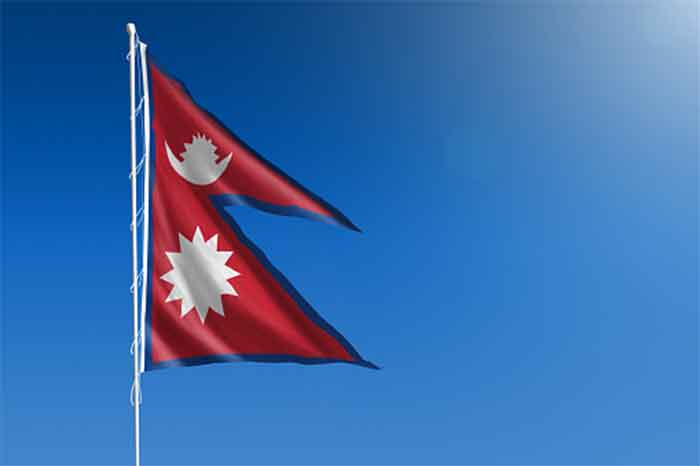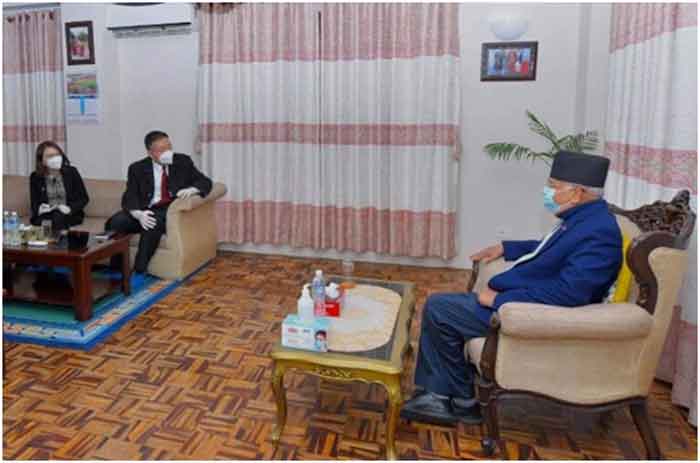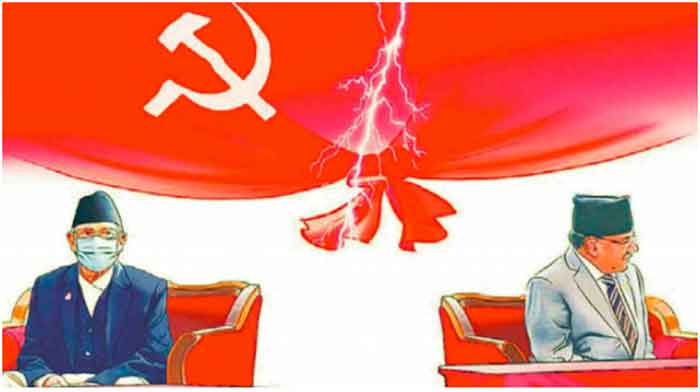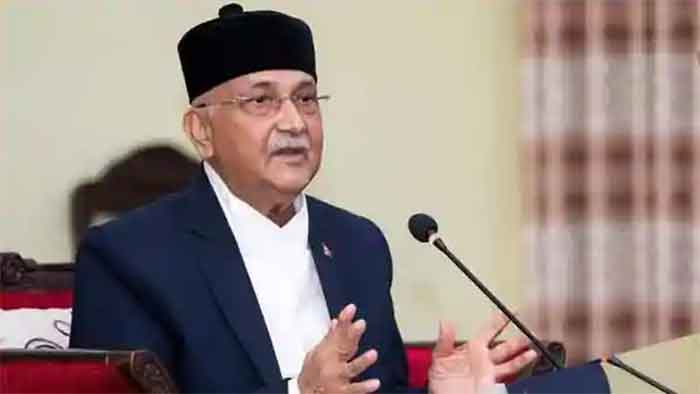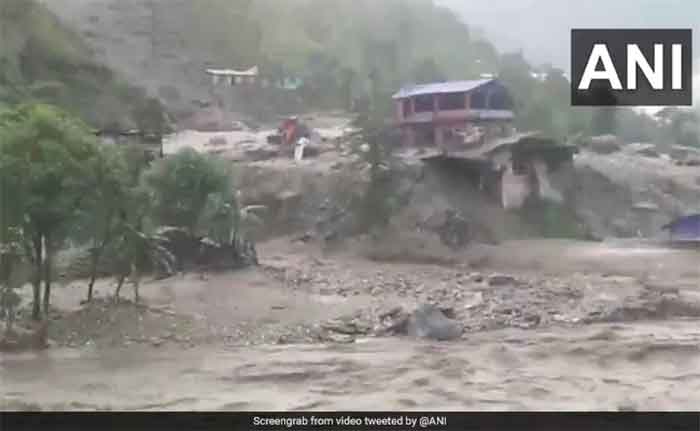Nepal has decided to shun the U.S. State Partnership Programme (SPP).
Media reports said:
The Nepal government has decided to not forward the US’ state partnership programme (SPP). The meeting of the Council of Ministers held on Monday took this decision. The Cabinet also decided that every government agency needs to make communications on diplomatic relations via the Foreign Ministry.
The government made the decision in the SPP following pressure from various quarters.
It, however, is in a fix. How to do that?
The Nepal Foreign Ministry said that it received the Cabinet decision on Thursday, but has yet to decide on its action.
“We received a communication from the Office of the Prime Minister and Council of Ministers regarding the decision on the SPP taken by the Cabinet just today [Thursday],” said a Foreign Ministry official. “We are coordinating with the political leadership and discussing the decision as it does not categorically say anything.”
The official said the ministry understands the gravity of the matter and that it will act as per the instructions of the political leadership.
While deciding not to move ahead on the SPP, the Cabinet on Monday also decided that all communications to foreign governments should be made through the Foreign Ministry.
Now it is up to the ministry to communicate to the U.S. government as per the Cabinet decision, which officials find vague.
The delay in writing to the U.S. despite the Cabinet decision has given rise to speculations if the Americans in Kathmandu have conveyed, through unofficial channels, their displeasure to the top leadership.
The SPP has become a hot potato in Nepal, with almost all political parties arguing against Nepal’s participation in it.
A debate on the SPP took centre stage after some sections of the media circulated a document which was dubbed a draft agreement between the Nepal Army and Utah National Guard of the United States.
Nepal Army Will Not Participate In SPP
The U.S. embassy was quick to react, calling the document “fake”. It, however, said that the U.S. accepted Nepal in the SPP in 2019 after its two requests in 2015 and 21017. But the Nepal Army put out a statement on June 15, clarifying it has not and will not participate in the SPP.
A day later, the Army had to scramble for justification, as a letter dated October 27, 2015, undersigned by then Army chief Rajendra Chhetri, made it to the public domain. In the letter written to the then U.S. ambassador Alaina B Teplitz, the Nepal Army has requested its association in the SPP. The Army confirmed the authenticity of the letter but said it was about seeking support for the relief and rescue efforts after the earthquakes.
At a House committee meeting last week, Foreign Minister Naryan Khadka and Army Chief Prabhu Ram Sharma said that Nepal is not part of the SPP and it does not intend to be. Prime Minister Sher Bahadur Deuba, who was summoned for Sunday, skipped the House committee meeting, citing his busy schedule.
CPN-UML And Congress
As the main opposition CPN-UML was lashing out at the Deuba government over the SPP, Congress general secretaries Gagan Thapa and Bishwa Prakash Sharma too urged the prime minister not to join the partnership as it could have security and military consequences.
U.S. Embassy
Amid confusion whether Nepal indeed is part of the SPP or not, it was the U.S. embassy in Kathmandu that came up with a statement in which it said a country can terminate its association with the SPP by writing a letter.
The government then said Nepal would not move ahead on the SPP but stopped short of explicitly saying how to end its association, if any.
On Tuesday, a day after the Cabinet decision on the SPP, Anna Richey-Allen, a spokesperson for the U.S. embassy in Kathmandu, told the Post whether to participate in the State Partnership Program or not is Nepal’s decision.
“Worldwide, the State Partnership Program brings together the US National Guard and military/civilian personnel for a variety of training and education both in the United States and in the partner nation,” she said. “Of the nearly 90 countries with the State Partnership Program, only Belarus has ended its participation.”
In the last 75 years of bilateral ties, the U.S. has provided several kinds of assistance to Nepal, including military aid.
Part Of The Washington-led Indo-Pacific Strategy
The SPP, however, stoked concerns as the issue surfaced on the heels of Nepal’s ratification of the Millennium Challenge Corporation (MCC) compact amid opposition from some quarters who called it part of the Washington-led Indo-Pacific Strategy. The U.S. has put the SPP as well under the IPS.
Critics of the MCC compact said that its ratification would pave the way for Americans to have boots on the ground in Nepal. Since the SPP is also about military-to-military exchange, political and intellectual circles expressed concerns if the U.S. army personnel would set up barracks in Nepal.
The U.S. embassy, however, has ruled out any such initiatives.
“Independent of the SPP, the U.S. bilateral relationship that has focused on people-to-people connections including student and professional exchanges, diplomatic engagement, military partnership, trade, and common values remains strong,” said the U.S. spokesperson.
There are also concerns if the row over the SPP could affect Deuba’s planned visit to the U.S. Deuba is set to visit the U.S. in mid-July, but no official announcement has been made yet. Chief of the Army Staff General Prabhu Ram Sharma who has already embarked on a foreign trip will reach Washington on June 27.
The embassy said that Nepal’s decision [on the SPP] would not affect any bilateral exchanges.
China Welcomes The Decision
China has said that it welcomes the Nepal government’s decision of not moving ahead with the SPP.
Speaking at a regular press briefing, Wang Wenbin, spokesperson of China’s Foreign Ministry, said on Thursday that as a friendly and close neighbor and strategic cooperative partner, China commends the Nepali government’s decision [not to move ahead on the SPP.]
“Various political parties and factions, the government, the army and people across the Nepalese society see the SPP as a military and security initiative closely linked to the Indo-Pacific Strategy,” said Wang, according to a Chinese Foreign Ministry’s statement, “and they consider it against the national interests of Nepal and its long-held non-aligned, balanced foreign policy to be part of the SPP.”
Beijing had earlier in February spoken about Washington’s “coercive diplomacy” when a debate was raging over ratification of the MCC compact. The Chinese see both the MCC and SPP as U.S. strategy to expand Washington’s influence and counter China.
Despite China’s concerns, Nepal’s Parliament, however, ratified the MCC on February 27.
On Thursday, stating that China will continue to support Nepal in upholding its sovereignty, independence and territorial integrity and support Nepal’s commitment to its independent and non-aligned foreign policy.
“China stands ready to work with Nepal to jointly safeguard regional security, stability and shared prosperity,” he said.
China commends the Nepalese government’s decision,” Wang told reporters in Beijing.
U.S. Setback
Nepal’s decision is a setback for the U.S. effort to expand its security influence in South Asia under the Indo-Pacific strategy.
SPP
The SPP is administered by the U.S. National Guard Bureau. It was set up in the 1990s to pair former Soviet bloc countries with the National Guard in American states, and now serves as “a key U.S. security cooperation tool” that includes partnerships with 93 countries.
Nepal first applied to join the SPP in 2015 as it wanted humanitarian assistance after a devastating earthquake that year and was accepted in 2019, according to the U.S.
During a visit to Nepal in April, Major General Michael Turley, adjutant general at the Utah National Guard, handed over the draft agreement of the SPP to Prime Minister Sher Bahadur Deuba and General Prabhu Ram Sharma, chief of staff of the Nepal Army, local media reported.
That was followed by a visit to the country earlier this month by Charles Flynn, commanding general of the US Army Pacific Command, which prompted speculation that Nepal could soon join the SPP.
Although the focus appears to be humanitarian, critics in Nepal have raised concerns over the potential military and broader nature of the alliance. The U.S. National Guard states on its website that, through the SPP, it “conducts military-to-military engagements in support of defence security goals but also leverages whole-of-society relationships and capabilities to facilitate broader interagency and corollary engagements spanning military, government, economic and social spheres”.
Critics’ View
Critics in Nepal have said that joining the SPP could be devastating for the country’s ties with China. The landlocked Himalayan nation is sandwiched between China and India and tries to balance its relations with the two Asian giants as well as with the U.S.
In February, Nepal’s parliament ratified a US$500 million grant from the MCC, a US government aid agency, to fund an electricity transmission line and road improvement project. The move – seen by critics as part of the Indo-Pacific strategy – sparked widespread protests amid concern about a potential military aim.

